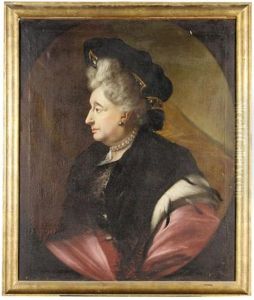Johann Conrad Eichler Paintings
Johann Conrad Eichler was a German botanist, born in 1839 in Neukirchen, Hessen, Germany, and passed away in 1887. Although not widely known outside the field of botany, Eichler made significant contributions to the study of plant taxonomy and the evolution of plant morphology. He is particularly remembered for his work in developing a system for classifying plants that was a precursor to the modern approach used in plant taxonomy.
Eichler's career was primarily academic, and he spent a significant portion of his life teaching and conducting research. He held positions at several prestigious German institutions, where he was deeply involved in the study and classification of plants. His most notable contribution to botany was the Eichler System, a method of plant classification that introduced the concept of phylogenetic relationships among plants. This system was innovative for its time because it attempted to categorize plants based on evolutionary relationships, rather than solely on their physical characteristics.
Throughout his career, Eichler published numerous papers and books that detailed his research findings and theories. His work laid the groundwork for future generations of botanists and plant scientists, influencing the development of the field of plant systematics. Despite his significant contributions, Eichler's work did not receive widespread recognition until after his death, when the importance of his contributions to the understanding of plant evolution and taxonomy became more widely acknowledged.
Johann Conrad Eichler's legacy is preserved in the Eichler Award, which is given in his honor to recognize outstanding contributions to the field of botany. His work continues to be cited by plant scientists and taxonomists, and he is remembered as a pioneering figure in the evolution of plant taxonomy and systematics.






























